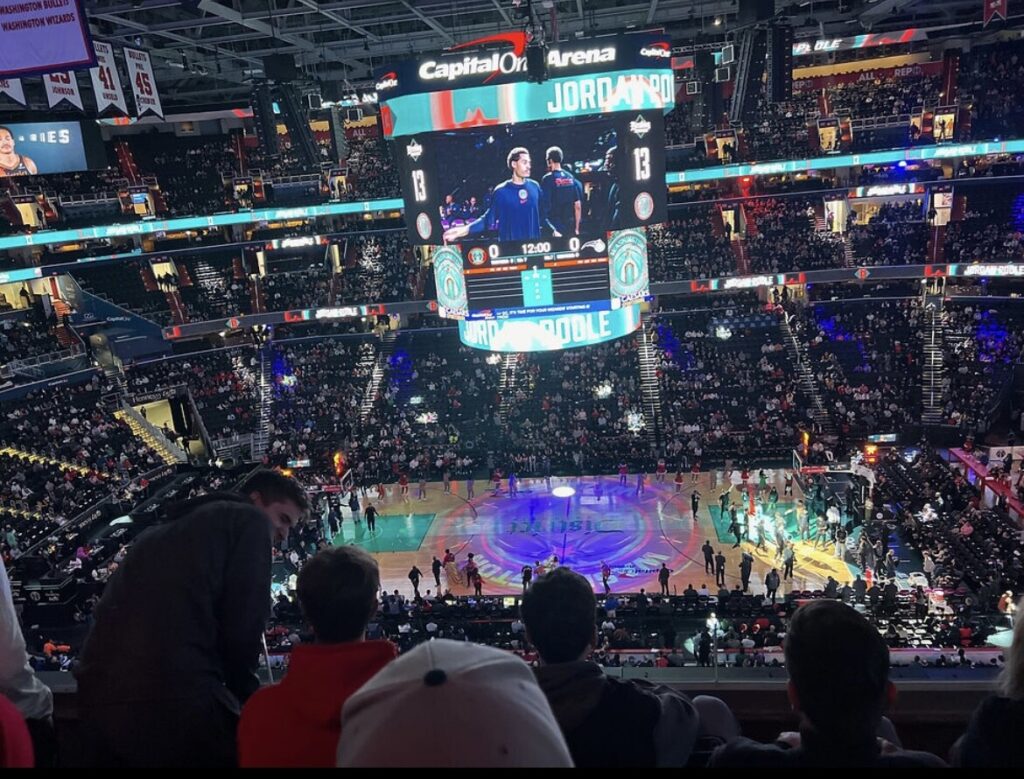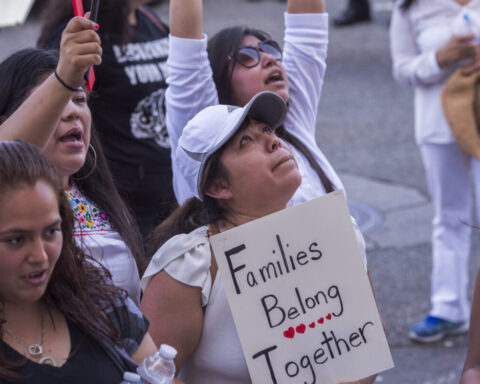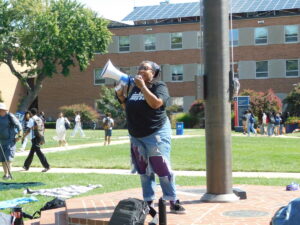The Washington Wizards have entered a full rebuild, trading away stars for youth and promise. But will patience run thin as D.C. rallies around the Commanders and Capitals instead?
By: Sean Mitchell

The Washington Wizards and the Orlando Magic introduce players at a game on March 6, 2024. (Photo: Sean Mitchell/HUNewsService.com)
The Washington Wizards have fully embraced a rebuild under Monumental Sports & Entertainment. The trade of veteran center Jonas Valančiūnas in February, combined with the accumulation of young assets and draft picks, reflects a long-term vision over immediate wins. This approach has divided opinion among D.C. fans, local media commentators and city stakeholders. They debate whether the franchise is laying the groundwork for future success or sliding further into irrelevance in a crowded sports market.
General Manager Will Dawkins has tempered expectations, stating at a preseason press conference that the organization remains in the “early stages” of the rebuild and will not “skip steps” or take shortcuts.
Since trading away stars like Bradley Beal and Kristaps Porziņģis, the Wizards have tasked rising talent such as Bilal Coulibaly, Jordan Poole and their recent draft classes with carrying the team’s hopes forward. The front office insists this is part of a long-term vision: a slower but more sustainable path to competitiveness.
Yet, as Monumental leans into this youth movement, skepticism is growing among fans accustomed to decades of mediocrity. The Wizards haven’t advanced past the second round of the NBA playoffs since 1979, and their history is filled with underwhelming seasons. With the Capitals making deep playoff runs and the Commanders attempting a resurgence, the Wizards risk becoming an afterthought in D.C.’s evolving sports identity.
At Penn Social, a popular sports bar just blocks from Capital One Arena, longtime season ticket holder Marcus Diaz shared his hesitation. “I want to trust the plan, but it feels like we’ve been rebuilding forever,” Diaz said. “At some point, fans need to see real progress, not just promises.”
Other fans echoed that uncertainty. Outside the arena, Monique Harris, a casual fan from Northeast D.C., drew comparisons to other franchises: “The Capitals have their playoff history. The Commanders finally feel like they’re turning a corner. With the Wizards, it’s always the same story — next year, next year, next year.”
Local businesses feel the ripple effects as well. At Clyde’s of Gallery Place, a restaurant that depends heavily on game-day traffic, employee Rachel Kim described slower nights.
“When the Wizards are struggling, it’s noticeable,” Kim said. “Fewer fans come early for dinner, and the buzz in the neighborhood just isn’t there.”
Virginia State Sen. Louise Lucas, chair of the Senate Finance & Appropriations Committee, emphasized why she opposed the proposed Alexandria arena project and its heavy reliance on taxpayer dollars.
“I could not in good conscience support a plan that asked Virginians to shoulder more than a billion dollars in public financing for a private venture,” Lucas said. “Our priority must remain investing in schools, health care and infrastructure — not subsidizing sports owners. If Monumental wants to keep the Wizards and Capitals competitive, they’ll have to do it without putting that burden on working families.”
Monumental Sports has insisted that the strategy will pay off in the long run, but critics argue that the clock is ticking. Without a transcendent star or clear direction, the Wizards could fall further behind in a city where sports loyalty is already spread thin.
The team’s arena situation still stirs debate, but the narrative has shifted. Earlier proposals suggested Monumental Sports & Entertainment might relocate the Wizards to Alexandria, Virginia, which would have reshaped not only team logistics but also the downtown D.C. economy. However, those plans have been shelved: The Alexandria arena negotiations officially ended in 2024.
Instead, D.C. and Monumental struck a deal to keep both the Wizards and Capitals at Capital One Arena through at least 2050, backed by a commitment of $515 million from the city for major renovations.
The District’s Attorney General has also asserted that the existing lease legally binds the teams to remain in Washington until 2047 — meaning any relocation would face serious legal hurdles.
Meanwhile, Capital One Arena is undergoing a sweeping, multi-phase modernization expected to conclude ahead of the 2027-28 seasons.
For now, though, fans are left clinging to hope. As one season-ticket holder leaving the arena put it: “We’re not asking for a championship tomorrow. Just give us a reason to believe this rebuild is different.”
Sean Mitchell covers sports for HUNewsService.com and The Hilltop.









